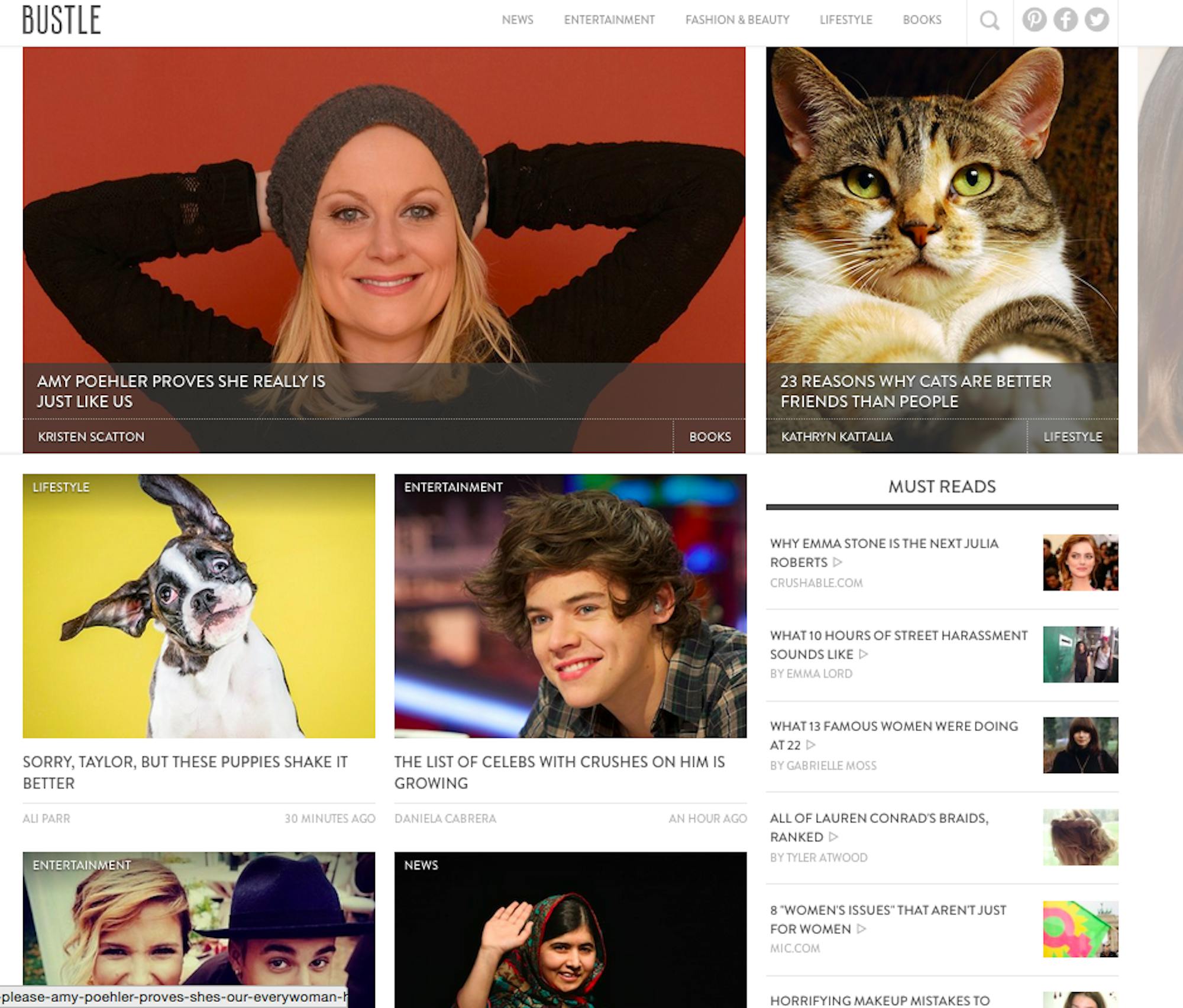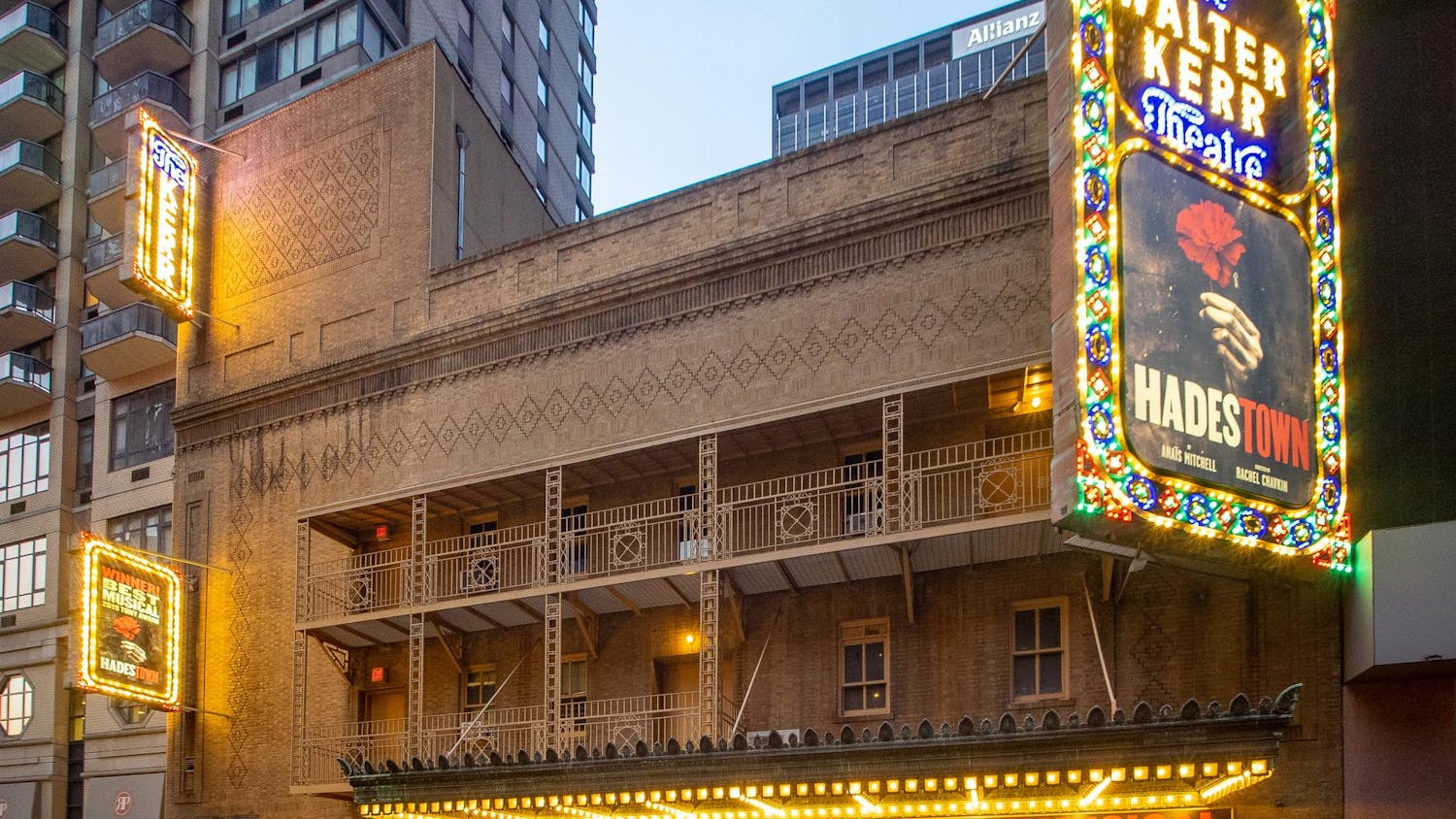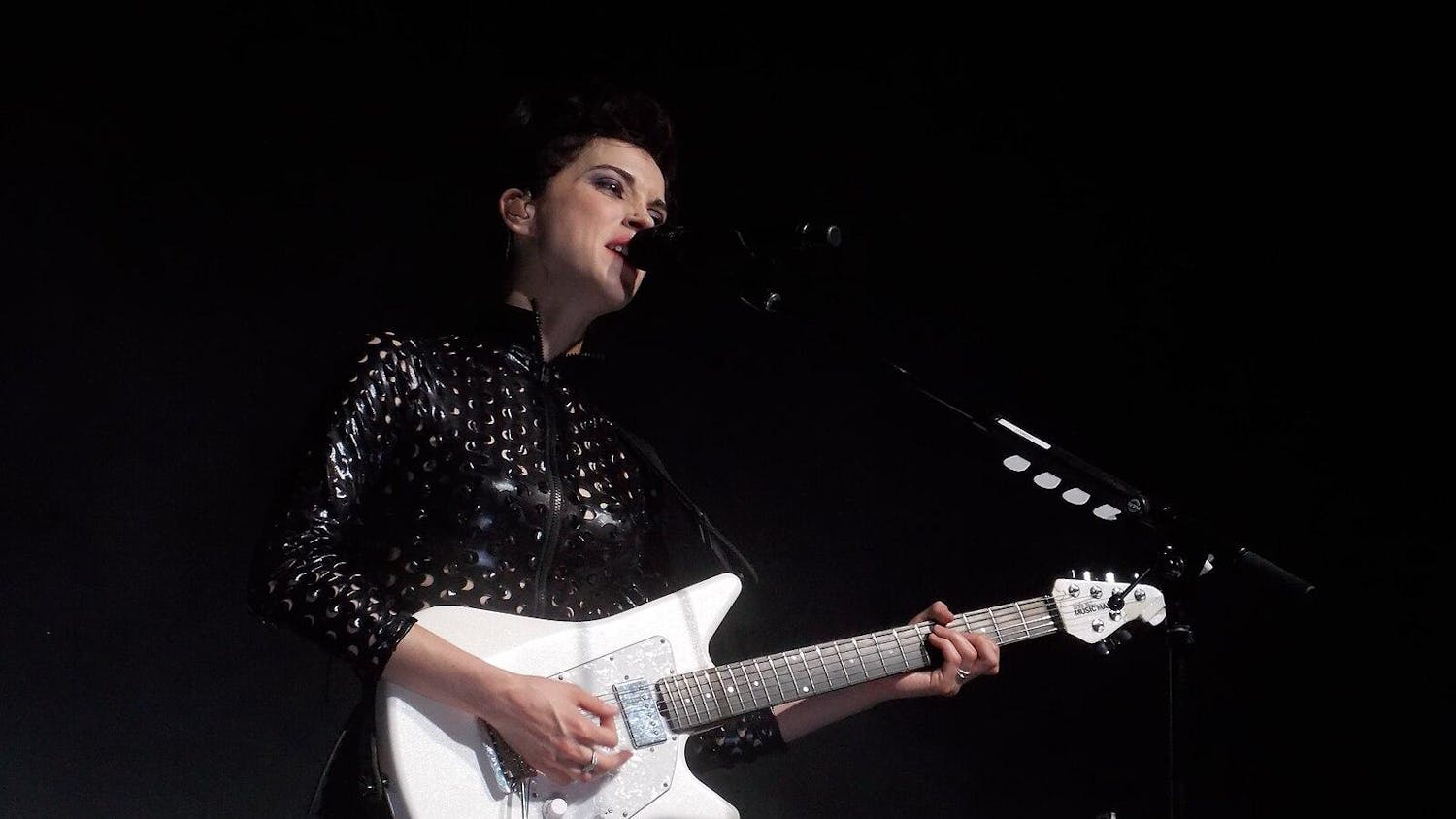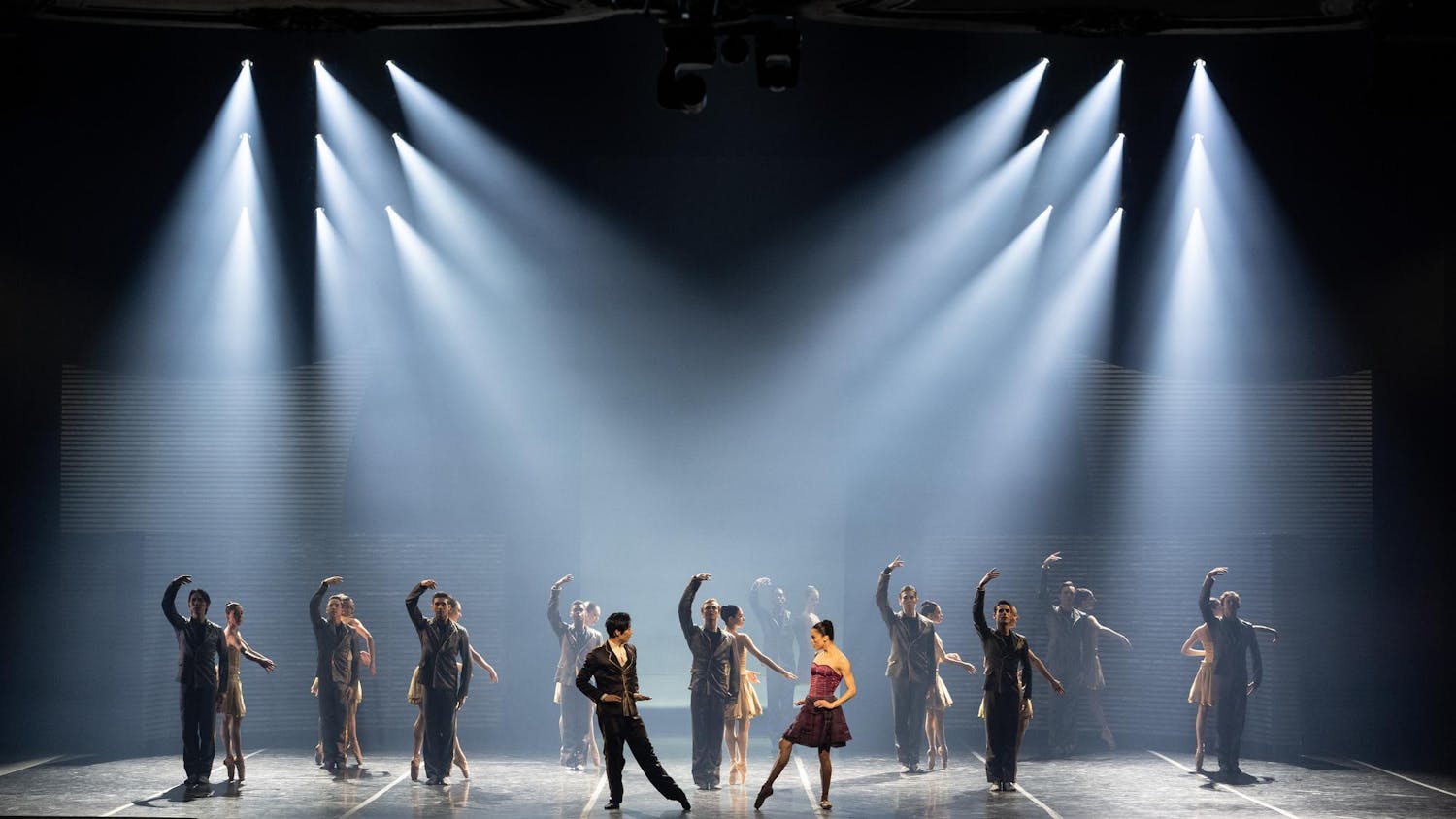In the era of instant gratification, serious journalism can occur on the web as well as in print. Online media is allowed informality and personality that traditional reporting lacks. First person narration is permissable online -- and so are memes -- but being boring isn’t. The desire to remain relevant has reached web magazines, spawning a strange mixture of genuine news, lifestyle tips, quizzes and entertainment.
Among these odd mash-ups -- the children of the internet -- is Bustle.com, a pseudo-serious Buzzfeed with a feminist twist.Readers who visit the site will be immediately affronted with large, colorful pictures and headlines like “23 times Beyonce was the undisputed queen of throwing shade” or “17 Ebola internet memes ranked from kinda funny to painfully racist and offensive.”The verticals (or topics) for the website, listed at the top of the page, are news, entertainment, fashion & beauty, lifestyle and books. The news vertical seems to be (and appropriately so) the most serious of the bunch, with articles regarding current events, although these posts have varying levels of solemnity. From an objective lens, it may be hard to understand what Bustle is trying to accomplish. Is it trying to provide “real” news, or does it just want to promote viral posts?
But when Bustle readers set aside pretenses and relax into the alternate universe of online journalism, the magazine can be quite enjoyable. It isn’t pretending to be The New York Times, or any other traditional print source. Its mission, as stated on the website, reads: “Bustle is for and by women who are moving forward as fast as you are.”
Still, it's interesting that a website seemingly dedicated to promoting women’s stories would have a man as its business leader. There is uncertainty as to whether Bryan Goldberg, the founder and CEO of Bustle, has a significant influence on what is produced. Is Bustle a lesson in what men think women want, and a desperate attempt to provide it for them?
Meredith Turits (A'09), one of the founding editors of Bustle and its current senior culture editor, doesn't think so. She disagrees profoundly with the idea that Goldberg’s position of power has any significant impact on Bustle’s content, or detracts from its mission statement.
“The entire website is run by women, and powered by women,” Turits said in an interview with the Daily. “Bryan is on the business end of things, but the entire voice -- the entire site -- is written by women ... The entire editorial staff is women.”
Still, while Goldberg may simply be involved in the business of running the magazine, it is all too telling that a site, purportedly "by and for" women, would still have a man as its CEO.
Regardless, Bustle definitely caters to young women. Its articles include profiles on female politicians and a seemingly endless amount of fashion trends and lifestyle tips. Bustle is certainly not lacking in quantity, and the inundation of information is deliberate.
“We post 200 times a day … [which] allows us to sort of run the gamut,” Turits said.
When asked if this method of production caused Bustle to veer into Buzzfeed-esque journalism territory, Turits was defensive of online media.
“Buzzfeed does really meaningful journalism,” she said. Furthermore, according to Turits, it is unrealistic for readers of web journalism to expect the same things from online as from print. Online reporting and print reporting are completely different and should be treated as such, she said.
“Readers of paper media are looking for paper media,” Turits acknowledged.
But Bustle is in the domain of web journalism, which has “several different pockets,” according to Turits. “There’s hard-hitting reporting … there’s fun, sort of GIFs-rich media.”
The very existence of Bustle bolsters the argument that news and entertainment should not be mutually exclusive, but can be housed in the same site for convenience and interest purposes, Turits said.
“We’ll do a serious news post about Ebola, and we’ll do a reported news story about what’s going on in a political district, but we’ll also do it next to an identity post about … what’s going on, in ... a hyper local area in northern Virginia,” she said.
The fact that readers can find all of these things in one place, Turits believes, has contributed to the website's popularity. She noted Bustle’s online success despite the early criticism it received.
“It really reflects the interests of what women really like," she said. "We like to look at all of those things in one place.”
While reporting on “what women really like” is the focal point of the website, it is not the only aspect that truly gives Bustle its own little niche of web journalism.
“I think Bustle is important because … it allows young women who haven’t necessarily had a background to write previously to break into digital journalism," Turits said about the magazine. "I think that’s the number one most important thing that we’re doing.”
Her assertion raises an interesting point: No matter the outcome of certain articles, Bustle is providing women with a platform to write and make themselves heard. Even though the online genre means writers’ voices are (perhaps) less polished and their stories less substantial than would be expected for print publication, Bustle still provides an online forum specifically for young women who might not otherwise be acknowledged. And Bustle seeks talent within this relatively inexperienced group.
“One of the things that has really been important for us from day one is to find really talented women who haven’t had a platform to launch themselves and to give them that platform,” Turits said, explaining one of the defining aspects of Bustle’s mission.
The inexperience of writers, however, may raise some red flags. In this day and age, anyone can be a writer. But maybe that’s the point of Bustle, and other popular new outcrops of online magazines. Because today anyone can report on what they love and have the opportunity to be heard. Young women do not often have their opinion asked, and a website created solely to promote their ideas -- flawed as it may be -- can be deemed a kind of feminist progress.
It is very easy to be cynical about Bustle, its creation and its mission statement. But Bustle and its content feel truly, unusually genuine, with not an ounce of irony to be found. Less serious articles aren’t written with a knowing wink, but treated as important within the context that they are written. The Ebola-meme article, written by Gabrielle Moss, for example, argues that the crueler jokes based on the disease “give us needed insight into the array of American reactions to Ebola, particularly the racism that’s crept into every aspect of Ebola in the U.S. from its media coverage to the actual quality of care received by Ebola-infected patients.” With Bustle, it is all about context. The Bustle women aren’t writing for a traditional paper. They aren’t even writing for the hallowed, snarky walls of Buzzfeed. They’re writing for themselves and for the sake of their own interests. These interests, no matter how many trivial-sounding titles glide across the homepage, are important at Bustle.
“It’s a fun place to be online," Turits said. “People really relate to the fun voice, the positive voice. They don’t relate to the snark on the site because there isn’t any snark.”
While many, upon visiting Bustle’s site, may decry the death of serious journalism and bemoan the sacrifice of tradition on the altar of instant gratification, they’re missing the point. Bustle certainly has its flaws, but it’s fulfilling a long-existing need of a forum for young women to write and read about their passions. It doesn’t have the standards of serious print journalism, but it isn’t supposed to have those. That isn’t its purpose. Bustle’s goal is to provide news through a female lens, and disperse that content to be read by women across the internet. Thus far, it’s succeeding.
Bustle: a bastion of feminism, but is it the future of journalism?

Bustle labels itself an online publication "by and for" women.





